The Importance of Forklifts in Logistics and Warehousing, and Future Trends
Forklifts are crucial in modern logistics and warehousing. They significantly boost productivity, enhance safety, and optimize space usage. This article explores the role of forklifts, their technological evolution, and future trends, and emphasizes the enduring importance of forklift operators.
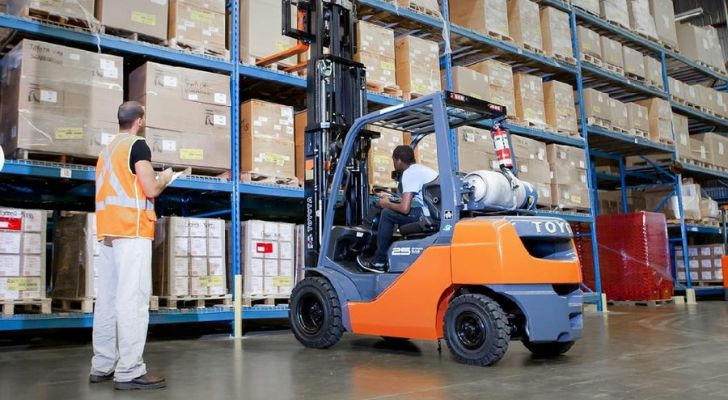
The Role of Forklifts in Logistics and Warehousing
1. How do forklifts increase efficiency?
Forklifts greatly enhance efficiency in logistics and warehousing. According to the Material Handling Institute (MHI), forklifts can increase the speed of moving goods by 30% to 50%. They handle tasks faster and more precisely than manual labor, helping businesses meet customer demands more effectively.
2. How do forklifts help reduce labor costs?
Forklifts minimize the need for manual labor, especially in large warehouses where manual handling would require many workers. Using forklifts can cut labor costs by 20% to 30%, reducing the number of employees needed and lowering overall operating expenses while maintaining high efficiency.
3. How do forklifts optimize warehouse space?
Forklifts maximize warehouse space by enabling vertical stacking. This improves space utilization and can increase storage capacity by up to 40%, according to U.S. logistics data. Efficient use of space allows businesses to store more products without expanding their warehouse, saving on real estate costs.
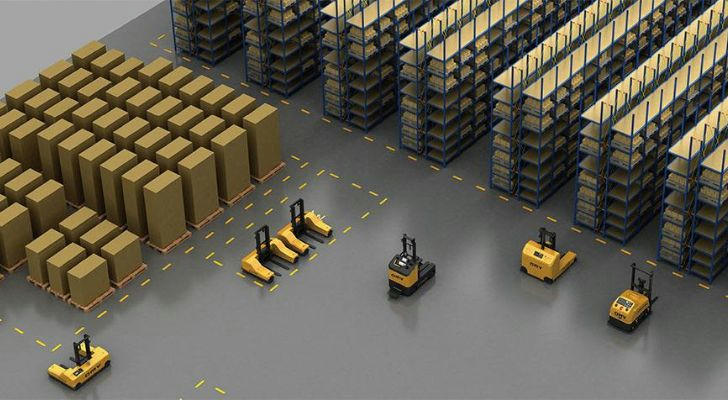
4. How do forklifts improve safety?
Forklifts enhance safety by reducing the risks associated with manual handling. The U.S. Bureau of Labor Statistics reports that forklift use can lower accident rates from 40% with manual handling to about 15%. Forklifts are designed with safety features and standardized procedures that help prevent accidents, and proper training and maintenance further improve safety.
The Evolution of Forklift Technology
1. The rise of electric forklifts
Electric forklifts are becoming more popular due to their environmental benefits. As of 2023, they account for over 60% of the global market. They produce no emissions, are quieter, and have lower operating costs compared to fuel powered forklifts. Research shows that electric forklifts can reduce energy costs by about 20%, making them a cost effective and eco friendly choice for businesses.
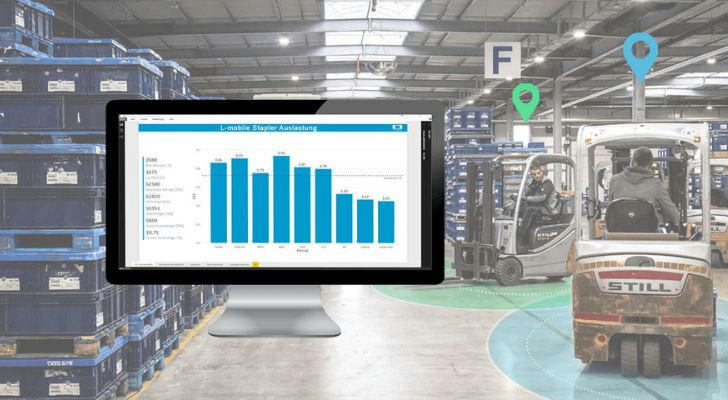
2. The emergence of automated and driverless forklifts
Automated and driverless forklifts are increasingly common, offering improved efficiency and fewer errors. The market for these forklifts was valued at $480 million in 2022 and is expected to grow to $1.2 billion by 2027. These systems operate continuously without human input, making them ideal for busy or labor scarce environments.
3. How does IoT impact forklift management?
The Internet of Things (IoT) is revolutionizing forklift management by allowing real time monitoring of performance and condition. IoT technology helps optimize operations, reduce downtime, and lower maintenance costs by 15% to 20%. Sensors track key parts and enable early maintenance, preventing major breakdowns and extending equipment life.
Future Trends for Forklifts in Logistics and Warehousing
1. How will unmanned forklift systems change warehouse management?
Unmanned forklift systems are expected to become more prevalent as smart technology advances. These systems can operate continuously without human error, improving warehouse efficiency. Experts predict that unmanned forklifts will account for over 20% of the global warehouse management market in the next five years.
2. What's the future for electric and hydrogen forklifts?
Electric and hydrogen powered forklifts are gaining traction due to the growing demand for green energy. Hydrogen forklifts offer fast charging and long range capabilities, with the market expected to exceed $5 billion by 2030. Electric forklifts will also continue to grow and remain a leading eco friendly option. These new energy forklifts help businesses meet environmental goals while improving efficiency and reducing costs.
3. How will big data and AI be used in forklift operations?
Big data and artificial intelligence (AI) will make forklifts smarter. Data analysis will enable more precise route planning, automatic cargo recognition, and early fault detection. AI can predict maintenance needs, helping to avoid breakdowns and downtime. As these technologies become more common, they will offer new opportunities for businesses to enhance competitiveness.
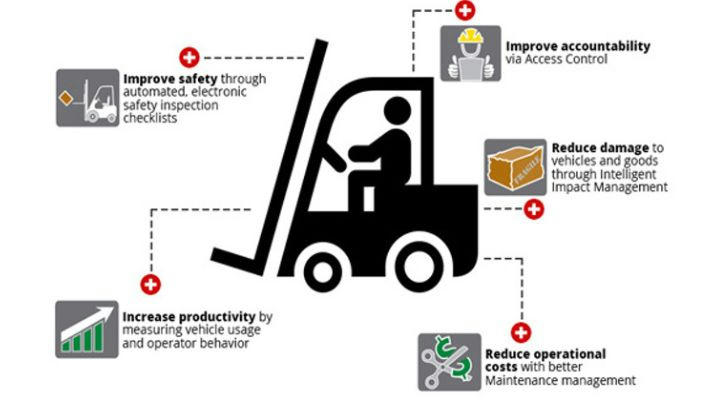
Real Case: Amazon's Automated Forklift System
Amazon, a leading e commerce platform, extensively uses automated forklifts in its logistics centers. At its Kentucky distribution center, Amazon employs hundreds of driverless forklifts and robots to handle and sort goods. This automation has increased efficiency by 25% and reduced order processing time to under 24 hours, showcasing the significant benefits of automated forklifts.
Conclusion
Forklifts are essential to modern logistics and warehousing, offering significant benefits in terms of efficiency, space optimization, and safety. As technology advances, forklifts will become even more integral to these industries, enhancing productivity and reducing operational costs.
However, forklift operators remain indispensable, even in an era of increasing automation. The reasons for this are multi faceted:
Complex Decision Making: Despite the advancements in automation, forklifts and their operations still require human judgment. Operators must make complex decisions in real time, such as adjusting for unexpected obstacles or changes in load distribution. Automation systems, while advanced, may not yet handle all scenarios with the nuanced decision making that experienced operators can provide.
Adaptability: Forklift operators are trained to handle a wide range of tasks and adapt to various warehouse environments and conditions. This includes managing different types of loads, navigating tight spaces, and responding to emergencies. While automated systems are becoming more versatile, they still face limitations in adapting to dynamic and unpredictable warehouse environments.
Maintenance and Troubleshooting: Operators are often responsible for basic maintenance and troubleshooting of equipment. They can quickly identify and address minor issues before they become major problems. Automated systems may require specialized technicians for maintenance and repairs, and they might not always have the immediate response capability of a skilled operator.
Human Oversight: Automation can enhance efficiency, but it also requires human oversight to ensure that systems are functioning correctly and to intervene if something goes wrong. Operators provide an essential layer of oversight, ensuring that automated systems operate smoothly and addressing any issues that arise.
Training and Expertise: The role of a forklift operator involves specialized training and expertise that cannot be easily replaced. Skilled operators are trained to handle complex equipment, follow safety protocols, and manage the nuances of warehouse operations. Their expertise ensures safe and efficient handling of goods, which is critical for maintaining smooth operations.
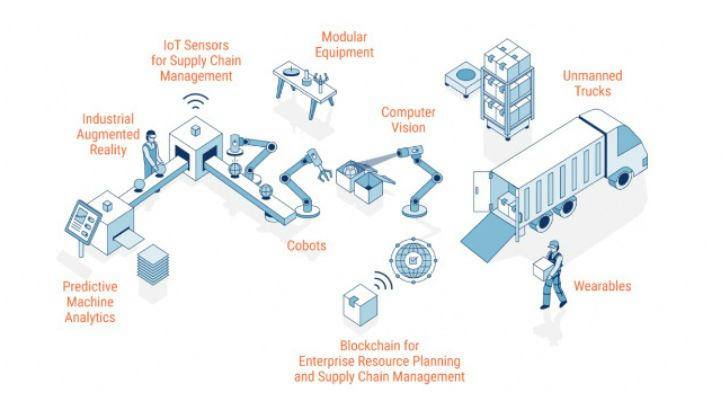
In summary, while automation and new technologies are transforming logistics and warehousing, forklift operators continue to play a crucial role. Their ability to make complex decisions, adapt to changing conditions, perform maintenance, oversee automated systems, and apply their specialized training ensures that they remain an irreplaceable part of the logistics and warehousing ecosystem. As technology evolves, the role of forklift operators will adapt but will remain essential for the efficient and safe operation of warehouses and logistics centers.
